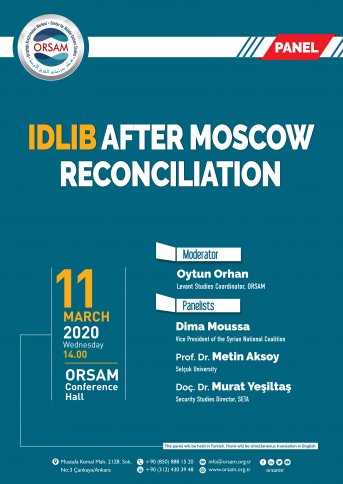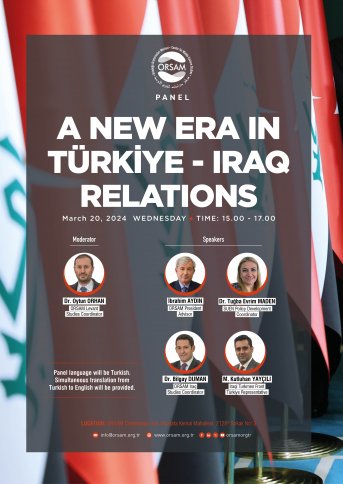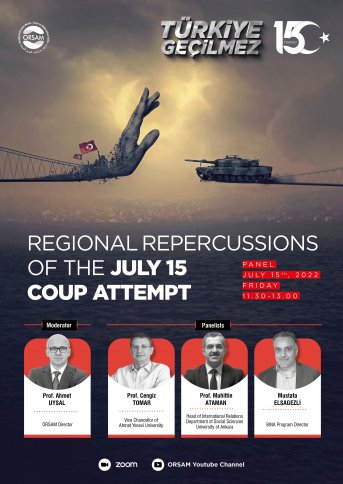
Idlib After Moscow Reconciliation
With the support of Russia, the Syrian regime followed the strategy of capturing Idlib by military operations containing great risks for Turkey. The civilian population, around 3,5 million, in Idlib is the foremost risk for Turkey where Syrian civilians can immigrate. In addition, in the event of controlling entire Idlib by the Syrian regime will lead weaknesses for Turkey both in the field and in diplomacy. For a long time, Turkey has carried out diplomatic attempts with Russia to prevent the assaults of the Syrian regime. However, as a result of these unfruitful efforts, Turkey started the Operation Spring Shield to prevent the assaults of the Syrian regime and to ensure the implementation of the Sochi agreement. As a result of the Operation Spring Shield, a new power balance emerged in Idlib. Turkey and Russia made a compromise to update the Sochi agreement to decrease the tension in the field. In this context, a new Idlib map has emerged, where the M-4 and M-5 highways will form a border between the Syrian regime and the Syrian opposition. Despite the agreement, it is controversial how much the Syrian regime will adhere to this ceasefire, based on past experiences. Another challenge is to ensure that the radical groups in Idlib comply with the terms of the agreement. Therefore, it is possible to say that the conflicts are frozen in Idlib for now, but the process is very fragile. There is a deep mistrust among the parties in Idlib; therefore Turkey, Russia, Syrian regime and Syrian opposition will continue to strengthen their positions. Moreover, U.S. can use this process in order to deepen the rift between Turkey and Russia.
Center for Middle Eastern Studies will arrange a panel on Idlib after the Turkey-Russia reconciliation in Moscow. As much as the current situation of Idlib after the Moscow reconciliation, the situation of external actors and their future politics on the region will be held in the panel. The meaning of the recent developments in Idlib for the political solution process in Syria will also discussed in the panel.
March 11, 2020
14:00-16:00
Moderator
Oytun Orhan, Levant Studies Coordinator, ORSAM
Panelists
Dima Moussa, Vice President of the Syrian National Coalition
Metin Aksoy, Prof. Dr., Selçuk University
Murat Yeşiltaş, Doç. Dr., Security Studies Director, SETA
Venue
ORSAM Conference Hall, Mustafa Kemal Mah. 2128. Sok. No: 3 Çankaya-Ankara
The panel will be held in Turkish. There will be simultaneous translation in English.





